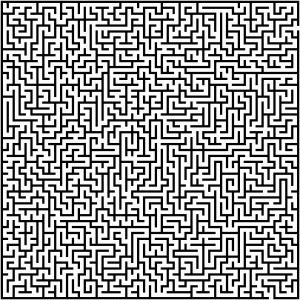When numbers attack
 Last week, the Chávez-friendly polling firm IVAD published its latest survey. The numbers are devastating for the government.
Last week, the Chávez-friendly polling firm IVAD published its latest survey. The numbers are devastating for the government.
While 48% of Venezuelans would like Chávez to end his term in 2012 and make way for someone else, a full 26% want him out of office … this year. Only 11% of Venezuelans want to see him govern until 2021.
People’s self-identification with chavismo is at an all-time low. A full 41% of people surveyed identified themselves as "not chavista," while only 29% identified themselves as "chavista." 23% of them identified with neither chavista nor "not chavista".
Close to 40% of Venezuelans blame the government for the electrical crisis. But close to 60% disapprove of the government’s handling of the crisis.
The percentage of people who think the country’s situation is positive (including those who think it’s moderately positive) is 35%. The percentage who think the country’s situation is negative is 62%. A full 42% think the country’s situation is either "bad" or "very bad." 54% of Venezuelans have little to no confidence on the President.
Is the opposition poised to reap the benefits of this disaster? Somewhat.
Its numbers are not great, but they are much better than they had been.
For example, 50% of Venezuelans think the opposition has a plan for the country, versus 41% who think they do not. A full 59.6% of Venezuelans think the work of the Mesa de Unidad is positive (including those who think it’s moderately positive).
On the other hand, Venezuelans are evenly split on the opposition’s work on behalf of the country, with 49% labeling it "positive to moderately positive," and 45% labeling it "negative to moderately negative."
Interestingly, voting intention for September 26th is split three ways. 29% expressed a desire to vote for the opposition candidate, 28% prefer to vote for the chavista candidate, and a whopping 29% prefer to vote for an "independent" option. If you add the "opposition" and "independent" options to the opposition (a big if), chavismo is in for a crushing 2-to-1 defeat in terms of votes.
But chavismo’s problems with numbers don’t stop there. Yesterday we learned that in 2009, GDP shrunk by 3.3%. Compare this to the 2.4% dip in the US GDP the same year, and Chávez’s assurances that the world’s crisis would not touch Venezuela "with a petal or a hair" seem downright laughable.
The fact is the economy that had "de-linked" itself from capitalism, that was "armored" against financial turmoil … has taken a worse hit than the center of capitalism, and continues to be mired in recession while the US is growing briskly again.
In light of these disastrous results, the predictions of chavismo’s favorite economists, the CEPR and Mark Weisbrot, border on professional malpractice.
In 2009, Weisbrot predicted that the government was "unlikely to suffer a forced devaluation in the foreseeable future," that "Venezuela’s inflation [was] likely to continue falling in the near future," and that thanks to "healthy" foreign reserves, Venezuela would not have to face "the kinds of economic troubles that currently plague the United States."
Wrong on all counts. Weisbrot should be fired with a whistle.
Finally, after years of mismanagement, a deep recession, and an unending electricity crisis, Venezuelan voters are turning on Chávez.
As Chávez himself said late last year: it’s a perfect storm alright … for the government.
Caracas Chronicles is 100% reader-supported.
We’ve been able to hang on for 22 years in one of the craziest media landscapes in the world. We’ve seen different media outlets in Venezuela (and abroad) closing shop, something we’re looking to avoid at all costs. Your collaboration goes a long way in helping us weather the storm.
Donate




